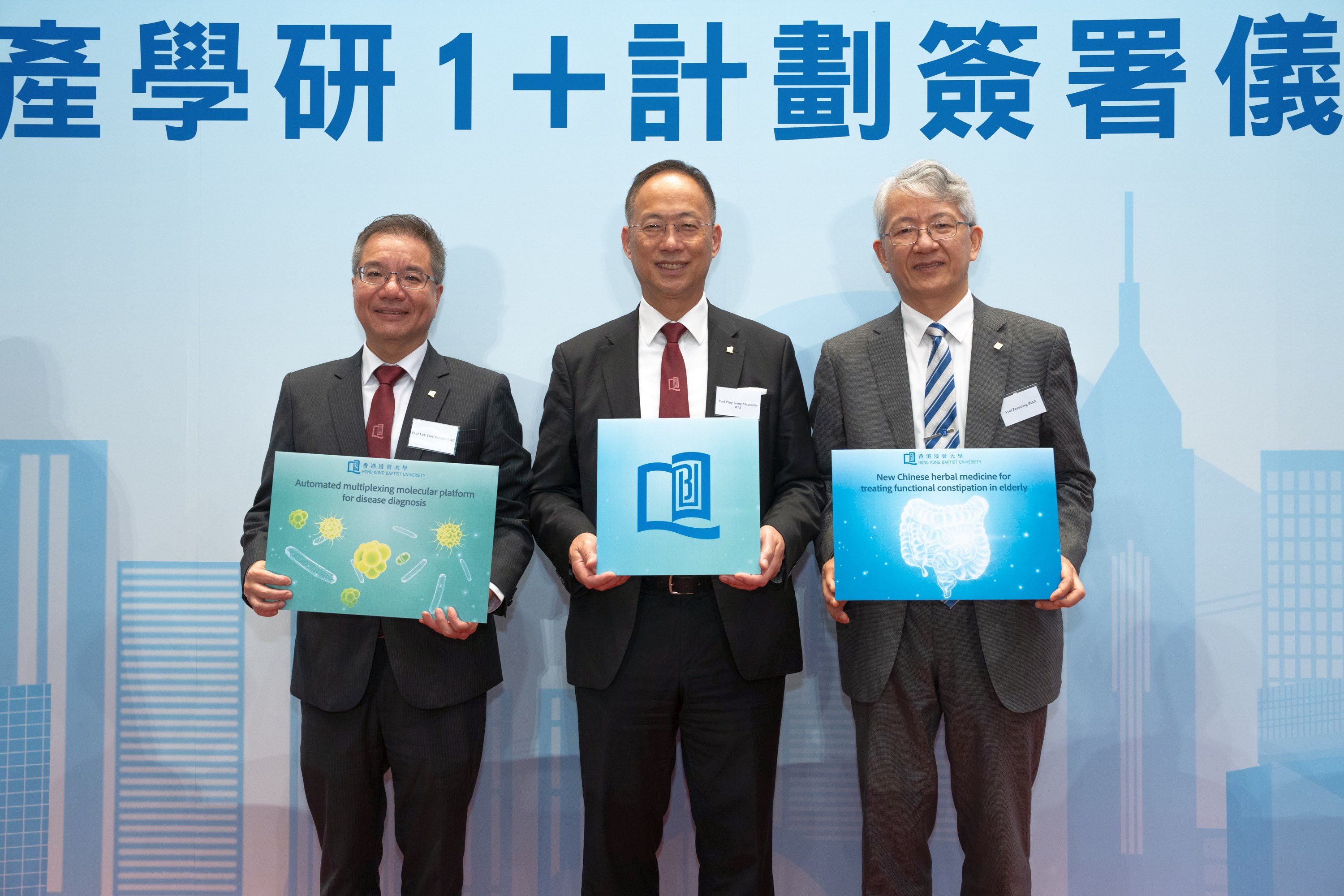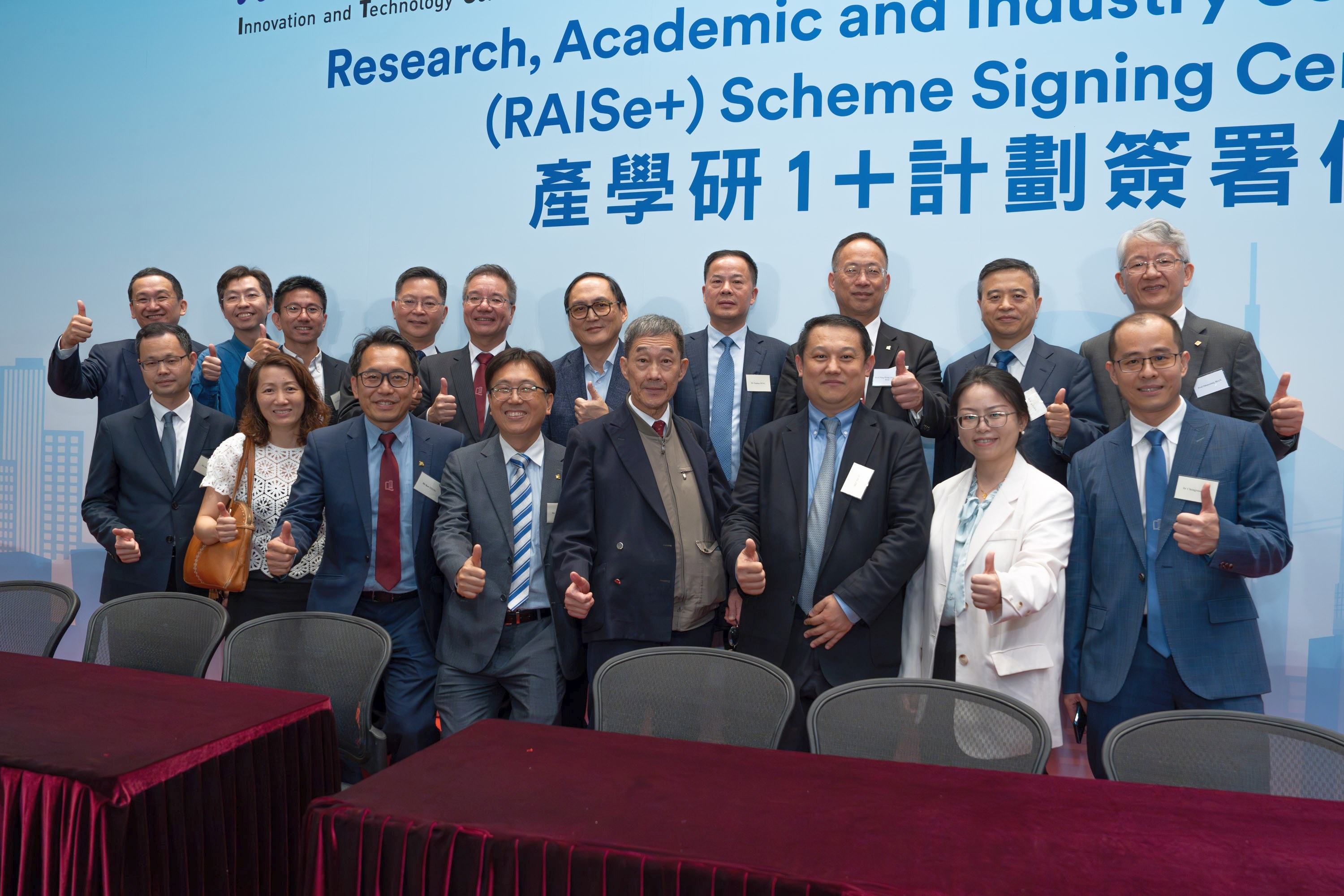Press Release
HKBU projects on disease diagnosis and new Chinese herbal medicine receive support from RAISe+
Tuesday, 28 May 2024
Two translational research projects of Hong Kong Baptist University (HKBU) have been awarded funding from the Research, Academic and Industry Sectors One-plus (RAISe+) Scheme under the Innovation and Technology Commission of the HKSAR Government.
The two HKBU projects concerned, focusing on a fully automated multiplexing molecular detection platform for disease diagnosis and a new Chinese herbal medicine for treating functional constipation in the elderly respectively, were announced today (28 May) at the Scheme Signing Ceremony organised by the Government.
Launched in October 2023, the RAISe+ Scheme aims to unleash the potential of local universities in the transformation and commercialisation of research and development outcomes, and facilitate relevant collaboration among the Government, industries, universities, and research sectors.
Professor Alex Wai, President and Vice-Chancellor of HKBU, said: “We welcome the results of the RAISe+ Scheme and are thrilled that two HKBU projects were being selected for funding support. Securing funding from the Scheme exemplifies the University’s commitment to advancing cutting-edge research and translating it into applications that directly benefit society. This achievement underscores the University’s dedication to driving innovations in Health and Drug Discovery, one of our key research clusters.”
The awarded project Advanced Point-of-care Molecular Systems for Clinical and Non-Clinical Applications, led by Professor Terence Lau, Interim Chief Innovation Officer of HKBU, has been awarded funding from the RAISe+ Scheme. It is an innovative and comprehensive diagnostic system with a transformational impact. It can eventually make diagnostic testing services more popular, protect us from the threat of infectious diseases, and safeguard our health.
The platform can achieve fast, accurate, and fully automated detection of more than 40 targets, allowing timely identification of disease-causing pathogens in an hour. It has already been adopted in some clinical settings. The research team is currently developing the second generation of the platform with the goal of further reducing testing time and making the device portable in size. The platform demonstrates the potential for further applications in tests for an extended variety of infectious diseases, cancers, food safety, environmental analysis, and more.
Led by Professor Bian Zhaoxiang, Associate Vice-President (Clinical Chinese Medicine) and Director of the Centre for Chinese Herbal Medicine Drug Development, the project on new Chinese herbal medicine for treating functional constipation in the elderly has secured a funding support from the RAISe+ Scheme.
In the Centre, Professor Bian’s team has developed a new drug candidate called CDD-2101, by combining a traditional Chinese herbal formulation and advanced technologies, with research and manufacturing conducted in compliance with international standards. The Investigational New Drug Application has been successfully submitted to the US Food and Drug Administration in 2023 and has been granted authorisation to conduct a phase I clinical trial of the new drug in the US. The project will further support the clinical trial development to make the drug available to all patients in need.
HKBU is committed to driving innovations, research and development, technology translation, and applications with the vision to respond to emerging challenges and opportunities globally, nationally, as well as those under the aegis of the HKSAR Government’s top policy priority on innovation and technology development. With specific focus on the strategic areas of Creative Media/Practice, Health and Drug Discovery, Data Analytics and Artificial Intelligence applications, and Humanities and Cultures, the University strives to bridge the gap in technology readiness between academic innovation and industry applications.

